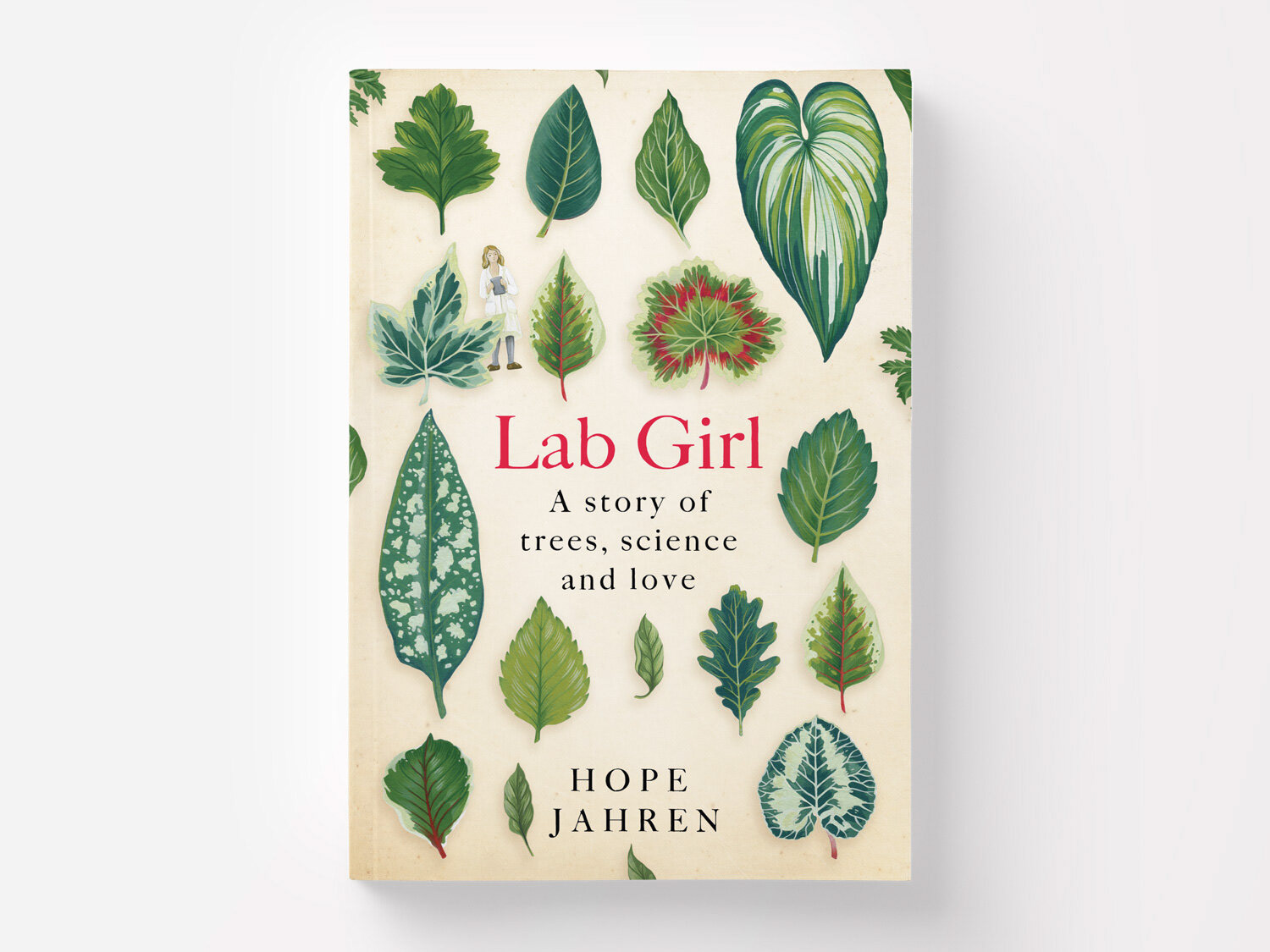Lab Girl – A Review by India Roberts


Cover illustration by Charlotte Day
While reading Hope Jahren’s memoir, Lab Girl, I wished I was in Alaska surrounded by lush and eclectic trees or settled comfortably in a greenhouse with only plants for company. At first glance the cover, adorned with varying illustrations of rich green leaves, and slogan (“A story of trees, science and love”), stimulates queries about what will be found during the perusal of this book. The narrative leaps between an abundance of information concerning botany and the story of the lives of those dedicated to researching it. Put candidly, I have little to no exposure to the study of botany, no matter how partial I am to the allure of trees, but the way Jahren intersperses her informative, scientific chapters with tales of friendship in a coming-of-age adventure, reinforced to me the crucial relationship between plants and humans.
I’ve never seen science written about with such whimsy and fanciful obsession; science has ensnared Jahren, and her dedication and passion seeps into the pages like coffee percolating through swirling hot water. Jahren constantly lets us in on little secrets and titbits in short, snappy chapters reserved for seed fertilisation, water retention and changing landscapes. Although informative, Jahren still traps our attention by relating these facts into our everyday lives and social impacts, “On the continent of Africa, a Pennsylvania-sized area of forest is converted to a city every five years”. Her longer chapters were striking in a more subtle way. Peppered in between pages that could grace a scientific textbook, are love letters; stories revealing a friendship that through mutual understanding blossomed into family. Jahren shows how dependent humans can be on each other without having conversations to acknowledge it, and also how we can be dependent on a career that provides us with identity. Hope and Bill’s friendship is forged because of the mutual love of science, but maintained through unspoken compatibility. The moments of affection are rare and gruff, but when they happen they’re all the more heart-warming for the absence.
Uniquely sewn together by revelations and life lessons, Jahren provides a harmonious marriage between the worlds of science and literature that strikes me as rare. I’ve always had a sly envy of people that excel in intellectual prowess and also possess the creativity to be able to write a book with language so exquisite, like Jahren. Her language gleams and made me stop at times to realise that I’d never heard anyone depict a feeling quite as accurately. This is highlighted brilliantly in the vivid description of her manic-depressive episodes, in which her language becomes rambling and her sentences never-ending. In our society, there is too often a divide between the ‘creative’ worlds and the ‘scientific’, so much so that we forget the inevitability that there are always elements of one in the other. Jahren blends these worlds together seamlessly, so that this book will be universally enjoyable.
The memoir provides enlightening commentaries on what it’s like being a woman in the male dominated world of science. In one particular chapter, Jahren was banned from the lab during her third trimester of pregnancy because it made the superior uncomfortable. This was powerful, and left me bitterly discouraged. Most interesting, perhaps was the intertwined nature of her career and her identity. Jahren describes her relationship with her scientific career with fierce attachment; it’s where she feels safe, but it’s the inclusion of nature in this mixture that interests me. Jahren outlines instances when the scientific work she’s engaged in doesn’t fulfil her as much as when she’s performing botanical experiments. What is it about nature that seems to feed her so? Plants are written about with such reverence and admiration and it struck me that much of Jahren’s identity and life has been ruled by them. Perhaps being connected to the powerful earth is what enabled her to write such a frank and grounded, yet ethereal book. Nestled in between the stories of family, are love letters to a different family altogether – the plants and nature that support us.
Finally, if you would love to hear more about India Roberts, then make sure to check our her Blog and Linkedin Pages!
(Used under Fair use for quotation, critique or review)

0 Comments